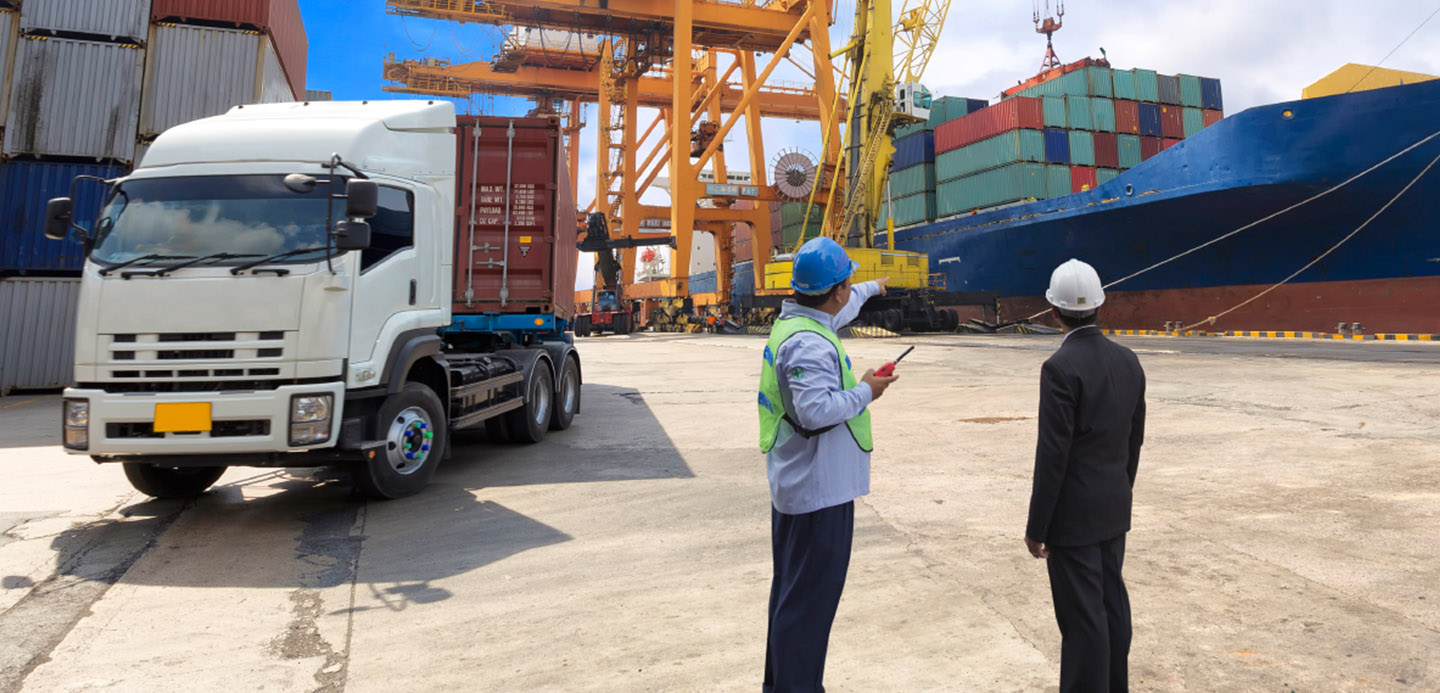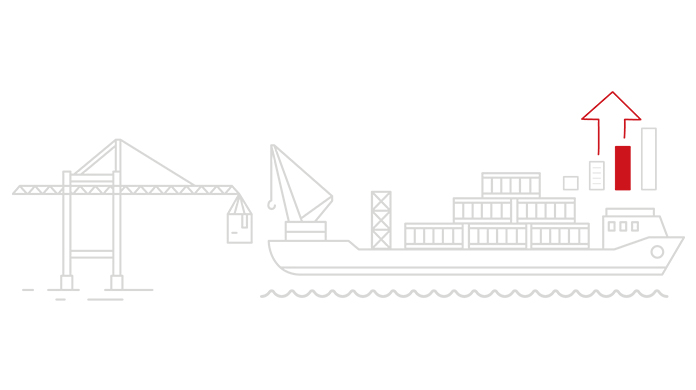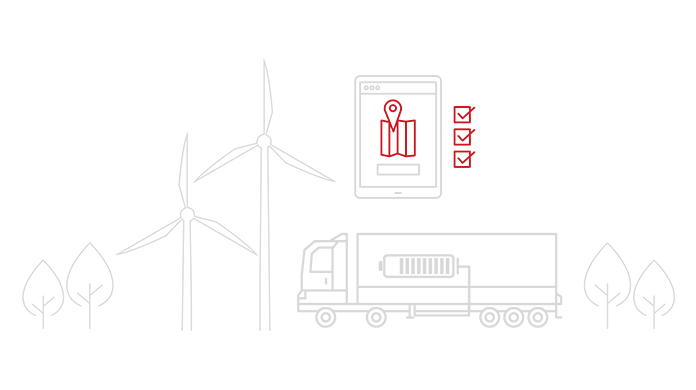- Article

- Infrastructure and Sustainable Finance
- Transition to Net Zero
Sustainable logistics: Strengthening ESG practices to build future supply chains
Hong Kong is a vital gateway for global trade, and its logistics industry has always been a core pillar of local economic development. Driven by the dual forces of supply-chain restructuring and the transition to a low-carbon economy, environmental, social and governance (ESG) has become a driver of long-term business resilience and growth.
Hong Kong, with its iconic harbour, is located at a strategic crossroads on the Far East trade routes. It's the region's premier logistics and maritime hub, playing a critical role in the global supply chain. As a trusted transition partner of the local business community, HSBC helps companies seize opportunities for growth linked to sustainable development.
This article outlines the opportunities and challenges for Hong Kong’s small and medium-sized enterprises (SMEs) implementing ESG in the logistics industry, and looks at what support is available.
How can logistics SMEs make ESG a competitive edge?
ESG goes beyond ethical responsibility by serving as a strategic approach that contributes to long-term business success.

Opening up new sources of income
McKinsey’s 2024 Procurement report highlights that ESG considerations have become integral to supply chain management, with leading companies partnering closely with suppliers to promote socially responsible practices while improving cost competitiveness. ¹ Logistics providers with recognised ESG certifications are often viewed more favourably by multinational corporates, as buyers increasingly prioritise sustainability credentials and seek suppliers who help ensure compliance with evolving sustainability regulations.

Streamlining operational cost management
Energy and packaging materials used in the supply chain are key factors in decarbonising the logistic sector. By investing in energy efficient equipment, optimising routes, switching to electric or hydrogen fuel-cell vehicles, reducing packaging waste, using recyclable materials, and adopting renewable energy, logistics firms can reduce their carbon footprint and manage operational costs more effectively.

Managing risks and building resilience
A Deloitte report on ESG and risk management notes that strengthening governance in ESG enhances transparency in decision-making and improves internal controls, which can mitigate risks such as regulatory non-compliance or reputational damage.² Transparent and responsible management practices may also foster greater trust among employees and stakeholders, in turn supporting workforce stability and organisational resilience.
As investors increasingly consider ESG performance in their investment decisions, strong ESG credentials can enhance investor confidence, and may contribute to attracting capital and securing favourable financing terms.
Three major challenges for SMEs implementing ESG
ESG principles are increasingly embedded into business operations, but many logistics SMEs still face real-world challenges:
Raising internal awareness and driving execution
- ESG implementation requires top-down commitment, yet management and frontline teams often have different levels of understanding.
- Clear targets, robust reporting and open communication are essential. Incentives and ongoing training can help SMEs embed ESG into daily routines and motivate staff to take ownership.
Balancing upfront costs with long-term gains
- Sustainable logistics initiatives, such as upgrading technologies, warehouses and fleets, require significant investment, putting pressure on SME budgets and cash flow.
- On top of that, many SMEs lack dedicated resources for gathering and reporting data, making it harder for them to navigate complex disclosure requirements.
Measuring progress effectively
- Environmental indicators like carbon emissions and energy use are relatively straightforward to quantify and monitor with the right tools.
- However, social and governance aspects, covering employee development, community engagement, business ethics, and transparency, are more qualitative and there are fewer unified measurement standards.
These hurdles underscore the urgent need for tailored support to help logistics SMEs make a smooth and effective transition.
What support is available for SMEs in the logistics transformation?
Policy backing
- The HKSAR government promulgated the Action Plan on Modern Logistics Development³ in October 2023 to promote the sustainable and high-quality development of Hong Kong's logistics industry.
- Green logistics is one of eight key strategies in the Action Plan and is supported by the following actions:⁴
- Strengthening on-the-job training and continuing education programmes to raise awareness of environmental conservation and sustainable development among SMEs and their employees
- Cooperating with the Hong Kong Productivity Council (HKPC) to organise certification courses and seminars related to green logistics, energy conservation and emissions reduction
- Encouraging the logistics industry to adopt existing technologies for achieving green logistics through the Pilot Subsidy Scheme for Third-party Logistics Service Providers, and providing advice through the HKPC
- The government is planning to announce an ESG roadmap for Hong Kong's logistics industry in 2025⁵, which will help SMEs to gradually adopt ESG measures for meeting international standards.
Industry-led support
- Local industry associations and chambers of commerce also provide a variety of ESG training programmes and certification schemes tailored to SMEs. These include seminars, training courses, testing and certification, and brand-building support to help companies improve their ESG performance.
HSBC: Your partner in driving ESG success for logistics
HSBC is a long-standing partner of Hong Kong's business community. We continue to offer our customers support to help businesses of all sizes seize sustainability opportunities.
Tailored financing
From green loans and sustainability improvement loans to social loans, our financing options* are designed with SMEs in mind.
In 2022, we also rolled out the Sustainable Taxi Finance Scheme to encourage wider adoption of hybrid vehicles across Hong Kong's taxi industry.
Seamless banking
Our diverse cross-border banking services help companies access faster, more efficient and digitally advanced banking and trade finance solutions.
Professional tools
The HSBC Sustainability Tracker is free and easy to use. It helps SMEs benchmark their energy use and operational performance against their peers, develop customised action plans, and track progress.
We also collaborate with Diginex, a tech provider specialising in ESG monitoring and reporting, to help firms produce reports aligned with global frameworks like the Global Reporting Initiative (GRI), Task Force on Climate-related Financial Disclosures (TCFD) and Sustainability Accounting Standards Board (SASB).
Sector insights
We regularly host ESG-focused seminars and workshops to keep our customers up to date with the latest trends and practical strategies, helping them to stay ahead of the game in ESG.
*Subject to eligibility requirements.
From facilitating trade between East and West to leading the way in driving sustainable growth, HSBC has always been a reliable partner for the trade and logistics sector. By combining innovative banking solutions with expert insights, we're here to support our customers wherever they are on their transition journey, helping them build stronger, more resilient businesses that are ready for the future.
Find out how we can support your sustainability journey.
Today we finance a number of industries that significantly contribute to greenhouse gas emissions. We have a strategy to help our customers to reduce their emissions and to reduce our own. Find out more about our climate strategy.
Reminder: “To borrow or not to borrow? Borrow only if you can repay!”
¹ https://procurementmag.com/procurement-strategy/procurement-2024-mckinsey-on-adapting-to-current-landscape
² https://www.deloitte.com/content/dam/assets-zone1/southeast-asia/en/docs/services/financial-advisory/2025/sea-fa-esg-essentials-a-risk-informed-transformation-journey.pdf
³ https://www.info.gov.hk/gia/general/202310/31/P2023103100299.htm
⁴ https://www.tlb.gov.hk/doc/Action%20Plan%20on%20Modern%20Logistics%20Development_e.pdf
⁵ https://www.tlb.gov.hk/eng/blog/20250329.html
² https://www.deloitte.com/content/dam/assets-zone1/southeast-asia/en/docs/services/financial-advisory/2025/sea-fa-esg-essentials-a-risk-informed-transformation-journey.pdf
³ https://www.info.gov.hk/gia/general/202310/31/P2023103100299.htm
⁴ https://www.tlb.gov.hk/doc/Action%20Plan%20on%20Modern%20Logistics%20Development_e.pdf
⁵ https://www.tlb.gov.hk/eng/blog/20250329.html


